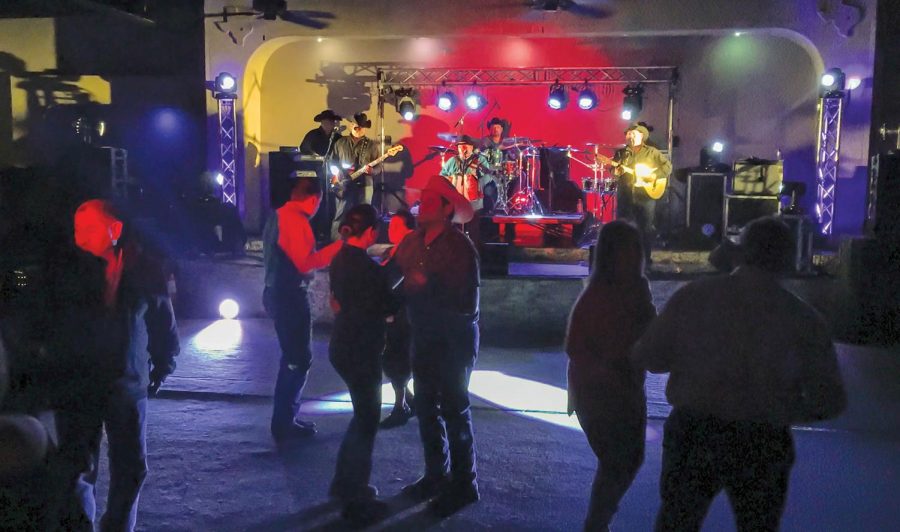East Austin festival keeps Tejano music alive with help of local residents
Maria Cardona-Gutierrez / Hilltop Views
Attendees dance the night away as musician David Farias performs.
The boots, tejanas and star-studded belts said it all. Tejano-loving East Austin residents gathered to celebrate the free “East Side Heritage Music Fest” in East Austin’s Dragonfly Hall on March 16.
This gathering was important to the attendees who feel pride in their location of residence and history of East Austin. Whether they live there currently, or once had a dominant presence and were pushed out by rising living costs, they feel a deep connection to the area, which was a central theme of the event.
Though the venue is located in a lonely area, anyone driving by could hear the thumping of the music and see the bright, colorful stage lights bouncing from wall to wall.
Performing at the event were musicians Angel Martinez, David Farias, Ashley Borrero & The Band as a Selena tribute and David Marez.
Throughout the night, attendees expressed their joy on the dance floor. The event was “BYOB,” and many brought their own 12-packs of beer to celebrate the good ol’ Texas way.
Tejano music has been the live representation of culture for many Mexican-Americans in Texas since its inception in the late 20th century. Popular artists such as Selena, Jay Perez and Emilio Navaira made it a popular genre of music for large audiences in the state for many years.
However, Tejano music has recently struggled to keep its popularity alive, increasingly going out of style as younger generations focus on more modern Mexican-American music. Even Ashley Borrero, the vocalist in Ashley Borrero & The Band, included a different genre in her performance with songs “Funky Town” and “I Will Survive.”
“This event is so important to many of us because we see the struggle of Tejano artists,” Bertha Delgado, former president of the East Town Lake Citizens Neighborhood said between performances. “We see them struggling to be able to play in venues, to have events and to be able to play their music in a hometown that belongs to us. We’re struggling to perform and be a Mexican-American cultural center, and now we’re fighting to keep our music.”
In spite of the struggle, the hopes of keeping Tejano music alive are not completely gone. Many who hold the music close see a promising future.
“Even though we were canceled, we still were able to perform. We still showed the city that we’re gonna continue to play, and that’s why we’re here today,” Delgado said. “They can’t take this from us.”
The fest is proof that Tejano-loving residents continue to thrive in the Austin area. As long as manifestations like this continue, the legacy of this historical Mexican-American culture will too.







